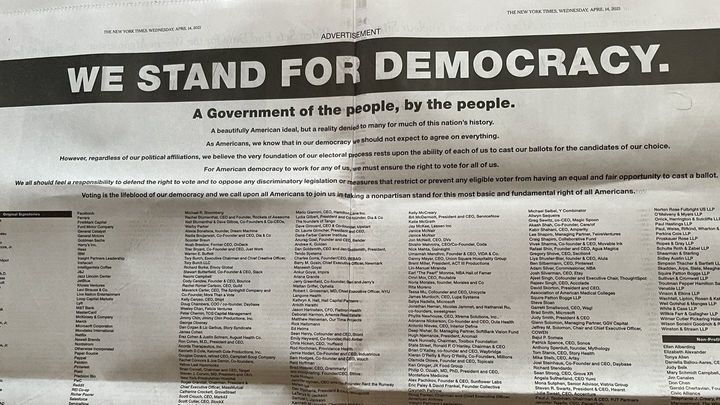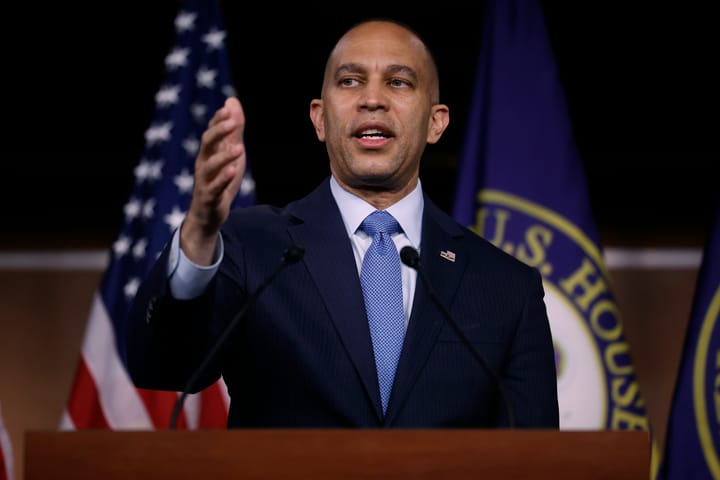Hundreds of U.S. companies and CEOs lent their names to a two-page spread that ran in the New York Times and Washington Post print editions on Wednesday, declaring “We stand for democracy.”
“For American democracy to work for any of us, we must ensure the right to vote for all of us,” the companies and CEOs said. “Voting is the lifeblood of our democracy and we call upon all American to join us in taking a nonpartisan stand for this most basic and fundamental right of all Americans.”
Several companies that signed the statement, however, are also members of the powerful business lobbying group the U.S. Chamber of Commerce that recently put out a “key vote alert” against a bill in Congress designed to enshrine federal voting rights, protecting voters even in states where partisan legislatures have attempted to restrict voting access.
Microsoft, United Airlines, Deloitte, and Ford Motor Company signed the newspaper statement, but also have their executives on the U.S. Chamber of Commerce’s board of directors. Other companies that signed the statement and appear to be U.S. Chamber of Commerce members include Facebook, Target, General Motors, Johnson & Johnson, and Merck. These companies are either members of U.S. Chamber of Commerce business council or have recently disclosed paying the trade association dues.
Yesterday, the Chamber warned U.S. senators against voting for the Democrats’ voting rights and election reform bill, S. 1/H.R. 1. The Chamber told senators it “believes the ability of Americans to exercise their right to vote in accessible and secure elections and to be able to trust in a free and fair outcome is fundamental to who we are as a nation.” But it also said in its letter to senators that it is “deeply troubled by efforts at the state and federal level to enact election law changes on a partisan basis.”
The bill, also known as the For the People Act, would require each state to implement automatic voter registration programs, same-day registration, and vote-by-mail options for all voters. It would also require states to have at least 15 early voting days for federal elections for at least 10 hours a day with some hours before and after typical work-shift hours.
Another provision of the bill would outlaw “voter caging,” a voter purge process where a political party or other organization sends mail to registered voters and then builds a list of returned mail and uses the list to seek to have those voters’ registrations revoked. The bill would also address states’ voter ID laws by requiring states to allow voters who lack an ID to vote if they complete a sworn written statement attesting to their identity.
The bill passed the U.S. House of Representatives on March 3 and is now pending in the Senate. It is expected to be filibustered by Republicans unless Senate Democrats amend the Senate rules.
Originally published at The Brick House Cooperative.



